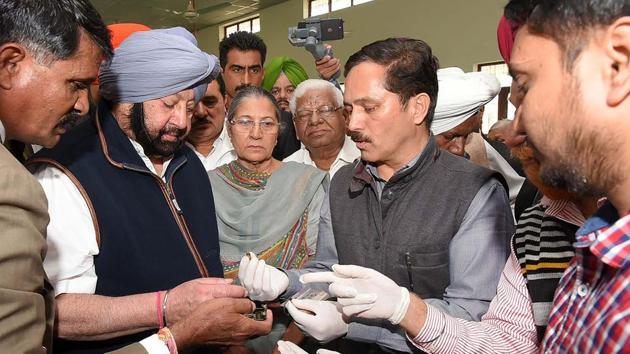The Amritsar blast is a wake-up call
It is high time that the state government focused on governance rather than religious issues.
Punjab has long emerged from the dark days of terrorism, but it still remains vulnerable to terror plots orchestrated by foreign elements. While most were thwarted in time by security agencies, a few succeeded in form of sporadic targeted killings in the recent past. While the recent grenade attack on the Nirankari congregation in Amritsar cannot be termed part of the revival of troubled times for Punjab, it has underscored how tenuous normalcy is in the border state.

The latest terror act, according to chief minister Amarinder Singh, has the ISI’s signature style. In the subsequent arrest of two perpetrators, police found the trail of conspiracy and hand grenade to Pakistan-based Harmeet Singh of Khalistan Liberation Force, a once-dreaded but now largely defunct terror outfit. It is also reminiscent of the 1978 Sikh-Nirankari clash that led to the killing of 13 Sikhs in Amritsar — a turning point that created the Jarnail Singh Bhindranwale phenomenon and pushed Punjab into a prolonged vortex of blood-letting and religious extremism.
Targeting of a Nirankari gathering after a long hiatus could well be a diabolical design to resurrect a dormant sectarian fault line in the state’s religious-social matrix. It fits well into Indian Army chief General Bipin Rawat’s recent warning on a bid to revive insurgency in Punjab through ‘external linkages’. Underscoring his red flag is the fact that security agencies have in last two years busted at least 16 terror modules, mostly comprising the youth radicalised through social media by foreign-based pro-Khalistan outfits.
The latest terror act has set alarm bells ringing on another front, too. It has ignited the debate on the politics over emotive religious issues that have lately been dominating the state’s narrative and overshadowing the agenda of governance. It has fuelled fears, not entirely exaggerated, of the resurrection of the fundamentalist fringe. Under critical scrutiny are the Amarinder Singh-led Congress government’s tactics of stepping into the Sikh religious domain to politically corner the main opposition Shiromani Akali Dal. This brings to mind the earlier Congress ploy of propping up radicals to checkmate the Akalis.
In his pursuit of holding those responsible for the 2015 incidents of sacrilege of holy Sikh book and killing of two Sikh protestors when Akalis was at the helm accountable, the chief minister has pinned the blame on former five-time chief minister Parkash Singh Badal and his son, Akai Dal chief Sukhbir Singh Badal. In retaliation, the Akalis have brought up the issue of distortions in the narrative about Sikh gurus in school history textbooks.
In his drive to catch the Akalis off-balance, Amarinder Singh has given Sikh radicals a handle when they have been spearheading the ‘Bargari morcha’ pegged to sacrilege. That has also exposed him to the charge of pandering to radicals. Their stir, though peaceful, has touched a chord among the Sikhs and become a rallying point for Sikh hardliners.
In that sense, the Amritsar blast is a wake-up call. It is high time that the state government focused on governance rather than religious issues.






